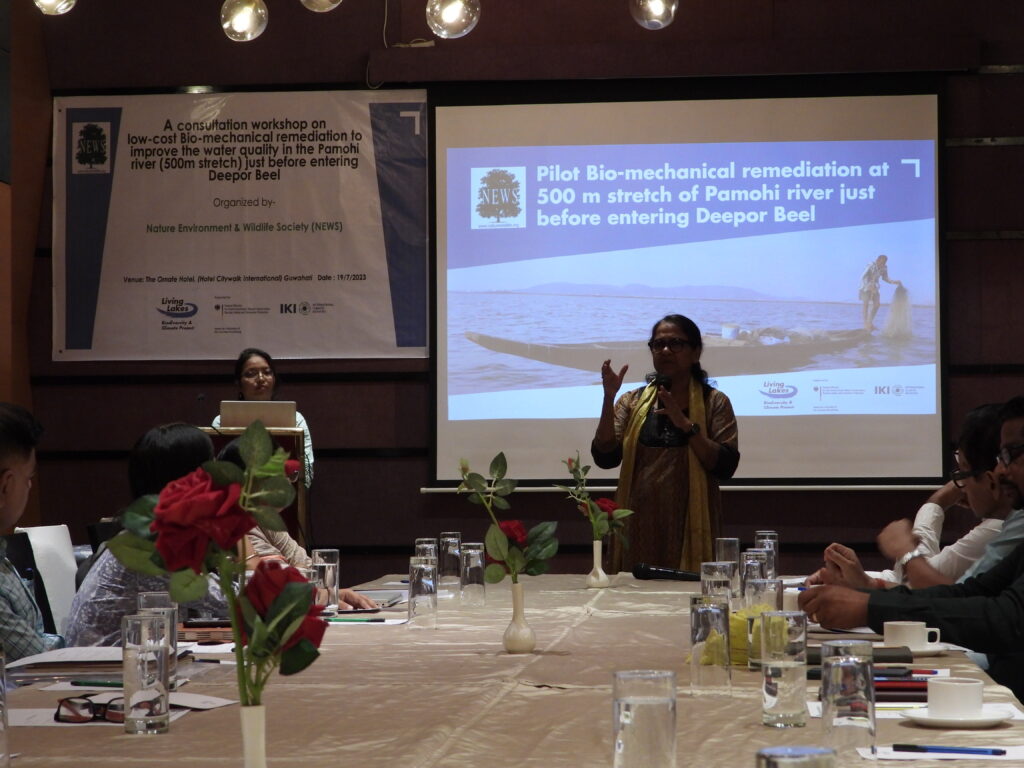Deepor Beel, nestled southwest of the Brahmaputra River near Guwahati city in the Kamrup Metropolitan district of Assam, India, stands as a vital wetland. It boasts the distinction of being the state’s sole Ramsar site and designated as the Deepor Beel Wildlife Sanctuary in 2009, as well as an Important Bird and Biodiversity Area since 2003. Deepor Beel was notified under the Guwahati Water Bodies (Preservation and Conservation) Act in 2008. Despite these conservation figures, untreated sewage constantly flows into the wetland from Guwahati city via the Bharalu and the Basistha-Bahini rivers through the Pamohi canal.
This wetland serves as a natural stormwater reservoir during the monsoon season, acting as the primary storage basin for Guwahati city’s drainage system. Despite its indispensable role, pollution poses a severe threat, impacting not only the health of local communities but also the overall environmental balance. Contaminated water jeopardizes the livelihoods of those dependent on fishing and agriculture, while the decline in biodiversity disrupts traditional practices and hampers cultural and recreational activities.
Acknowledging these challenges, a collaborative effort emerged among stakeholders, including government organizations, local communities, and NGOs. In June 2023, under the Living Lakes Biodiversity and Climate Project (supported by IKI, the International Climate Initiative), the Nature Environment and Wildlife Society (NEWS) orchestrated a day-long stakeholder consultation workshop. Themed “Low-cost Bio-mechanical Remediation to Improve Water Quality in the Pamohi River,” this initiative sought to apply bioremediation as a cost-effective treatment method for the polluted water entering Deepor Beel. Focusing on a crucial 500-meter stretch just before the Pamohi canal enters the wetland, this project represented a significant step toward mitigating the ecological impact of pollution.

Addressing another pressing issue, the Nature Environment and Wildlife Society (NEWS) took a proactive approach to solid waste management. On September 26, 2023, NEWS organized a stakeholder consultation workshop titled “Synergies for Sustainable Cities: Identifying Collaborative Actions to Mitigate Waste Management Issues.” For the first time, this workshop brought together government officials, local communities, NGOs, and experts to strategize comprehensive solutions, emphasizing the crucial role of collaboration in addressing waste management challenges.
Engaging the local community
Ensuring an active participation of local community members has been paramount during these workshops. Their dedication is evident as they emphasize issues related to pollution from garbage disposal sites and city sewerage through Pamohi. The workshops serve as a platform for a diverse range of stakeholders, fostering open discussions and collaboration to tackle the multifaceted challenges Deepor Beel faces.
The holistic management of Deepor Beel involves a synergistic collaboration among various stakeholders, including government departments, local communities, and NGOs. This collaborative journey underscores a shared commitment to safeguarding Deepor Beel, with the NGO, NEWS, playing a pivotal role in driving initiatives that seamlessly marry environmental conservation with community engagement.
Though challenges loom, the resilience of Deepor Beel and the dedication of its stewards paint a hopeful picture for the future of this vital wetland ecosystem. These collaborative efforts stand as a testament to the power of collective action in preserving and nurturing the delicate balance between nature and human development. The story of Deepor Beel becomes one not just of conservation but of hope, resilience, and a brighter future for this invaluable natural treasure.


